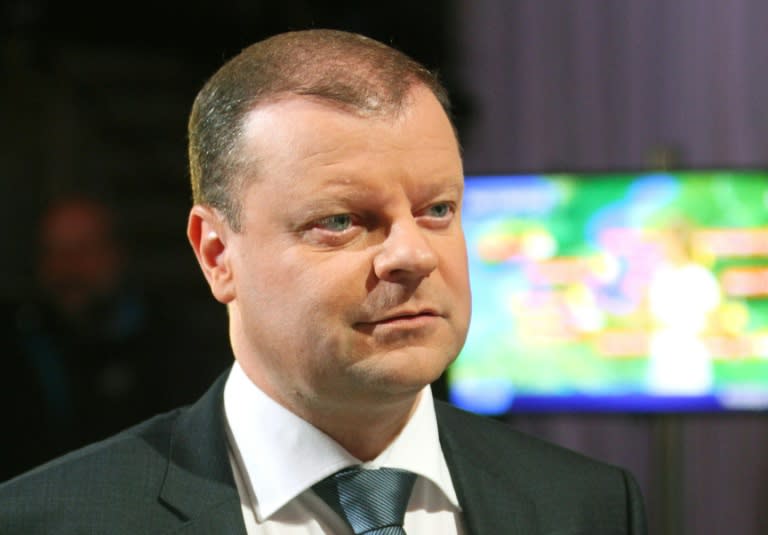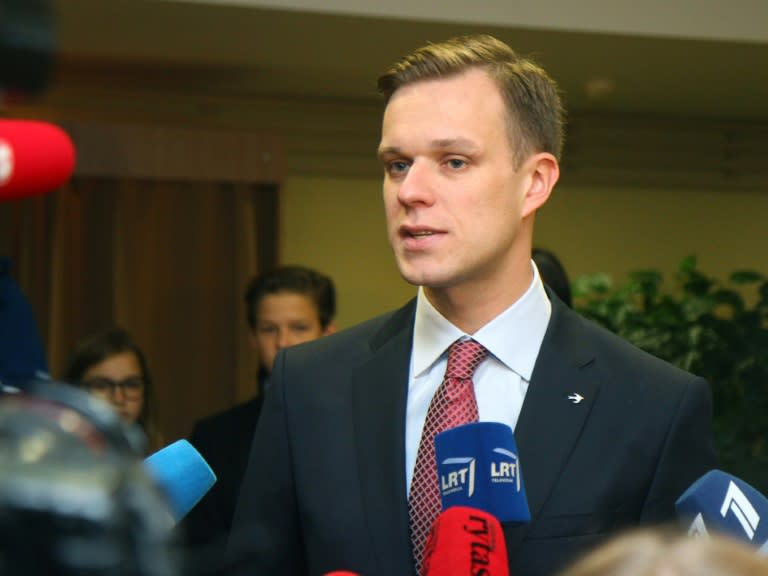Lithuanians vote for change handing farmers' party surprise win
Lithuanians fed up with low wages and a labour exodus voted for major changes in Sunday's general election, handing victory to a farmers' party that previously held just one seat in parliament. The centrist Lithuanian Peasants and Green Union party (LGPU) won 54 seats in the 141-member parliament, while the conservative Homeland Union took 31 and outgoing ruling Social Democrats 17, the state election commission told AFP Sunday, citing full results. Three other small parties also entered parliament. Lithuanians voted overwhelmingly for change, Ramunas Vilpisauskas, director of the Institute of International Relations and Political Science in Vilnius, told AFP. "The LPGU will spearhead the coalition. This result means that people really want new faces in politics," he said, adding candidly that he "didn't expect it." He also said that on the foreign policy front, the LPGU would keep Lithuania firmly rooted in the EU, the eurozone and NATO. "We will forge a rational coalition government and we'll chose people who want to bring about changes," Saulius Skvernelis, a popular former national police chief who ran as the LPGU's candidate for prime minister said on national TV as the results rolled in. He said the party was opening coalition talks with both the Homeland Union and the Social Democrats of outgoing Prime Minister Algirdas Butkevcius. "We'll bring transparent and responsible policies," said Skvernelis, who is widely respected for tackling corruption in the police force during his term as commander. - 'Grand coalition'? - Popular in the countryside, the LPGU's official leader is Ramunas Karbauskis, a billionaire industrial farmer and land baron. He has raised the idea of a "grand coalition" of all parties in parliament creating a technocratic government focused on economic growth. Wage growth and job creation were key election issues the country of 2.9 million people, plagued by an exodus of workers seeking higher wages abroad. Since Lithuania joined the European Union in 2004, an estimated 370,000 people have left -- nearly half to Britain, where concern over immigration from eastern Europe was a key factor in June's shock referendum vote to leave the bloc. Sunday's result effectively dashed the chances of Homeland Union leader Gabrielius Landsbergis becoming prime minister. Analysts had tipped him as a favourite after his party finished narrowly ahead of the LPGU in round one of the election on October 9. The 34-year-old grandson of Lithuanian independence icon Vytautas Landsbergis had vowed to fight emigration by creating jobs, reforming education, boosting exports and foreign investment. Outgoing Prime Minister Butkevicius -- who lost his seat on Sunday -- had promised further increases to the minimum wage and public sector salaries. But analysts said a new labour law making it easier to hire and fire employees, coupled with allegations of political corruption, have alienated voters already bitter over low wages and the brain drain to western Europe. - Tough on corruption - Lithuania's economy shrank by nearly 15 percent during the 2008-9 global financial crisis but quickly recovered and is forecast to expand by 2.5 percent this year. But the average wage of just over 600 euros ($670) per month after tax remains one of the lowest in the EU, and inequality and poverty remain comparatively high. Skvernelis's hard line on corruption and the LPGU's promise to revamp the economy won over voter Galina Aleksejeva, a 50-year-old seamstress. "They'll introduce fresh economic policy," she told AFP after voting in Vilnius, adding that she wants to see the LPGU in coalition with Butkevicius' Social Democrats. Russia's deployment earlier this month of nuclear-capable Iskander missiles to its Kaliningrad exclave two weeks ago rattled nerves in Lithuania which shares a border with the Kremlin-controlled territory. But reassurance provided by NATO's beefed up regional presence -- a move that all major parties approve -- means that voters are more worried about their wallets than security. Lithuania's election commission tallied turnout at 38 percent of the 2.5 million eligible voters.



